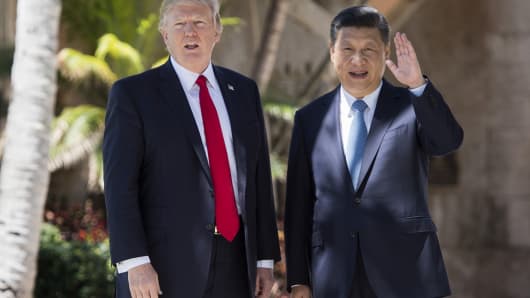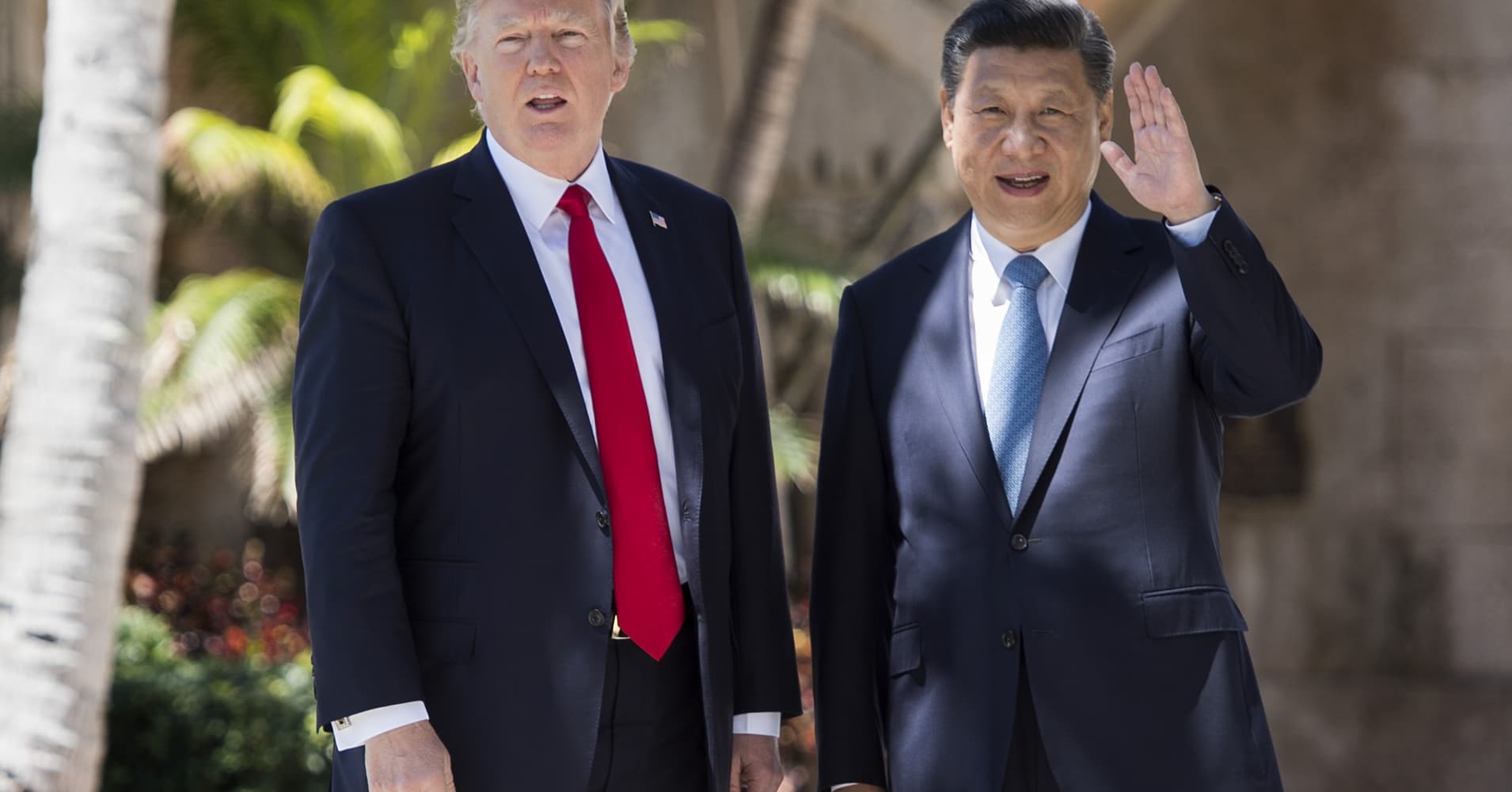
Jim Watson | AFP | Getty Images
Chinese President Xi Jinping (R) waves to the press as he walks with US President Donald Trump at the Mar-a-Lago estate in West Palm Beach, Florida, April 7, 2017.
Negotiators have made progress on the details of the written agreements that have been hashed out to address U.S. concerns, he said.
"If you looked at the texts a month ago compared to today, we have moved forward in all areas. We aren't yet where we want to be," the official said, speaking on condition of anonymity.
"They're talking about forced technology transfer in a way that they've never wanted to talk about before - both in terms of scope and specifics," he said, referring to Chinese negotiators. He declined to give further detail.
Reuters reported previously that the two sides were working on written agreements in six areas: forced technology transfer and cyber theft, intellectual property rights, services, currency, agriculture and non-tariff barriers to trade.
U.S. Trade Representative Robert Lighthizer and Treasury Secretary Steven Mnuchin arrive in Beijing on Thursday for a new round of talks with Chinese officials to work on a deal that would end a months-long trade war that has cost both sides billions of dollars and hurt global economic growth.
The in-person talks, which will be followed by a round in Washington next week, are the first face-to-face meetings the two sides have held in weeks after missing an initial end-of-March goal for a summit between U.S. President Donald Trump and Chinese President Xi Jinping to sign a pact.
Talks would continue as long as progress is being made on the core issues, the official said.
"It could go to May, June, no one knows. It could happen in April, we don't know," another administration official said.
The two sides still have differences over intellectual property and how to enforce a deal, he said.




